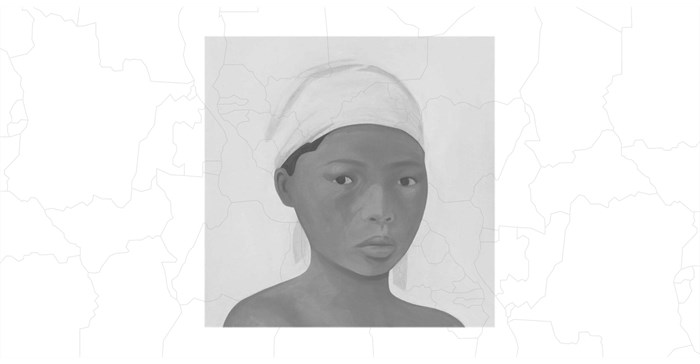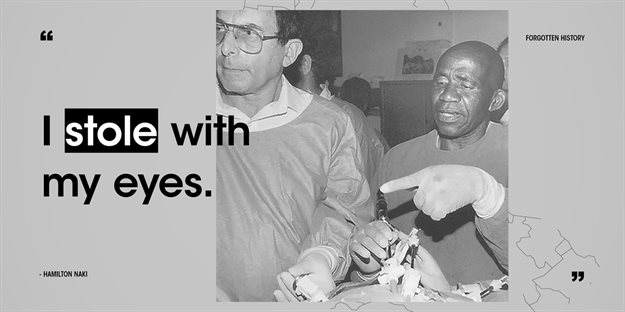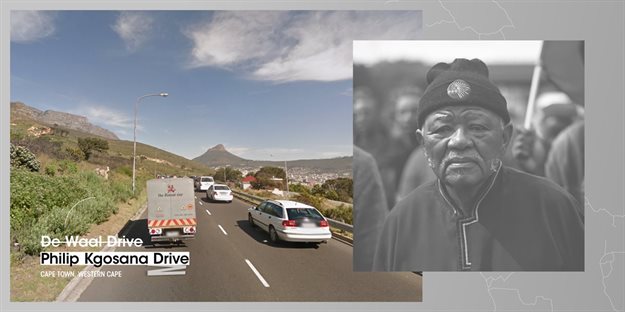
Role models are more important than simply a person who you look up to. They are people, places and events that show you what’s possible, what your reality could be, or even what could be surpassed. We are seeking out role models who were previously hidden from view. People like Krotoa, forgotten by generations of South Africans who have no idea of her existence, bravery and immense impact on our country, its past and its future. It’s stories like these for which we hunger, and are seeking out before they are truly forgotten.

King William’s Town is already well known as the birthplace of Black consciousness and activist. Steve Biko. But more than one hero was born there. Struggle activist and lawyer, Griffiths Mlungisi Mxenge, came into the world in King William’s Town in 1935. Mxenge’s most famous case was defending 18 Pan African Congress members in Bethal. Because of this case and many others, the Apartheid government and police saw him as a threat. He joined the ANC Youth League while studying in Fort Hare, and was later charged with terrorism and sentenced to three years on Robben Island. Mxenge was brutally murdered in 1981, and sadly his wife, Victoria, met the same fate four years later.

Hamilton Naki’s story is not likely to happen again and, for the most part, that is a good thing, given that he was born into a South Africa being torn apart by Apartheid. Born in 1926, Hamilton became a gardener and, despite having no formal education, went on to become an integral player in the operation that became known as ‘Christiaan Barnard’s first heart transplant’. He was well known as an excellent educator of young surgeons and ran the animal laboratory at Groote Schuur. Sadly, the asymmetrical nature of history means we do not know the full extent of Hamilton Naki’s achievements.
I podcasted with Godobori and Nyauist who are two philosopher artists archiving South African history utilising the ideologies of the Situationist International movement of the late 20th century. They are looking at the psychogeography of cities in South Africa to study the influence of the geographical environment on the mind. What this means is that they are literally mapping the psyche of the local population by reviewing building and street names. I’ll be honest when I say that the philosophical acrobatics my mind had to do were intense, but all the more fun because of it.
Pan Africanist Congress activist, Philip Kgosana, was born in 1936. Awarded a bursary to study a degree at the University of Cape Town in 1958, he found his passion ran more towards politics and fighting against Apartheid, he dropped out of UCT and became fully devoted to the PAC. On the 21st March 1960, members of the ANC and PAC marched to protest the dreaded Pass Laws. The march ended when 67 protesters in Sharpeville had been killed, and was the catalyst for the subsequent banning of the ANC and PAC.
With the leaders of the PAC on the run or arrested, Philip was catapulted into a leadership position when he assumed the role of the regional leader of the PAC in the Western Cape. The Sharpeville Massacre is largely regarded as the turning point for resistance movements and the fight against Apartheid. Others, though, believe Sharpeville was not the turning point but rather it was the Langa Protest. Here, too, people marched in defiance of the Pass Laws. However, this was the first time the South African government and police did not know how to respond, and eventually, let the protesters go.
Philip Kgosana was 23 when he led the Langa Protest becoming one of the youngest leaders to lead a protest movement. Even during exile in Ethiopia, he still fought against the Apartheid regime. legacy is remembered with the naming of Philip Kgosana Drive, a road that leads to Cape Town CBD, a place that cemented his place in South African history.
We podcasted with project manager Kgwalepa Manamela, who gave us even more context for the lack of understanding that we have regarding African stories having recently done a course that taught about women throughout African history who had led nations, had developed societies and sciences. Women who had led when no one else would, or could.
Women like Labotsibeni Mdluli, who served as both Queen and Queen Mother of Swaziland (1858-1925 Queen mother and Queen 1899-1921). As Queen, she wielded outright authority, which she used to defend Swazi rights and territory from Boer and British intrusions.
Women like Rose Ziba Chibambo, an anticolonial Malawian militant between 1928 and 2016. In the 1950s, Rose formed the Nyasaland Women’s League with the goal of supporting women’s issues and raising their awareness of political issues.
These stories continue to be lost to the sands of time and it’s our duty as young Africans to seek them out.
